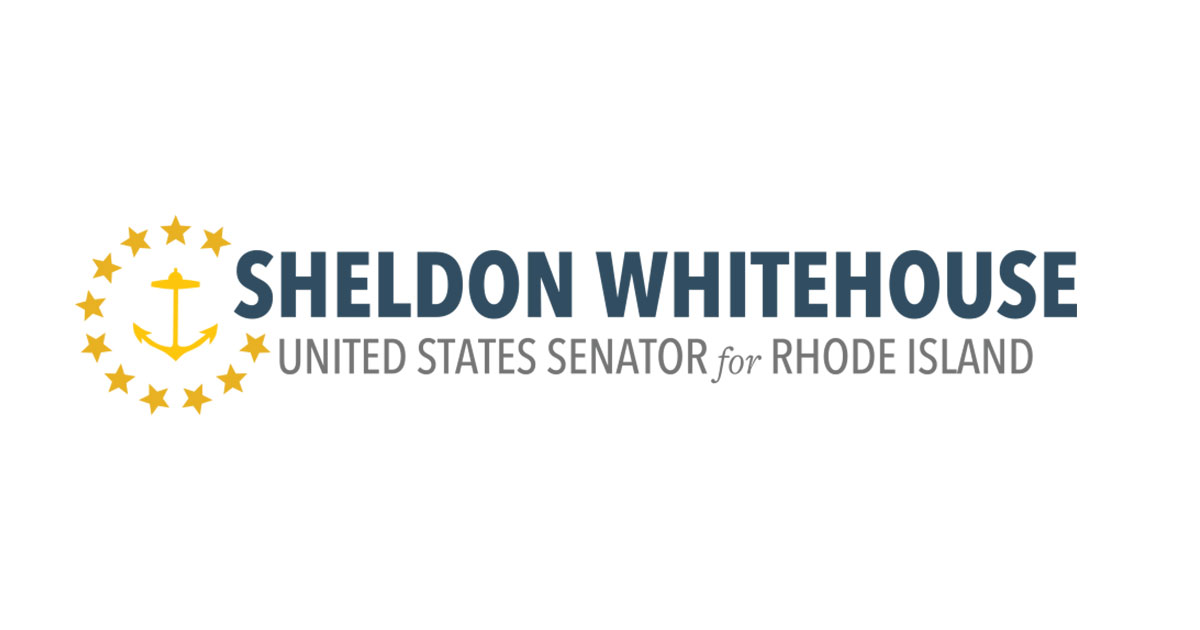Source: United States Senator for Rhode Island Sheldon Whitehouse
06.08.21
Bipartisan request for documents related to justices’ travel will help lawmakers assess the strength of SCOTUS travel transparency requirements
Washington, DC – Today, Senators Sheldon Whitehouse (D-RI) and John Kennedy (R-LA), Chair and Ranking Member, respectively, of the Senate Judiciary Courts Subcommittee, asked the Attorney General and the Director of the U.S. Marshals Service for records to help lawmakers assess transparency requirements for gifts, travel, and other emoluments received by Supreme Court justices. The Marshals Service provides security to justices during their travels outside Washington, and has records that could help the Courts Subcommittee consider how justices’ disclosures compare to those of senior officials in the other branches, as well as to those of the rest of the judicial branch.
Following passage of the Ethics Reform Act of 1989, Congress and the executive branch implemented strong disclosure requirements for officials’ outside income, gifts, travel, and reimbursements. The judiciary, for its part, has adopted less stringent guidelines and has not made such information on judicial branch disclosures readily available to the public. But even those rules do not apply to the justices of the Supreme Court, meaning the nation’s highest judicial officers have the lowest standards of transparency of any senior officials in the federal government.
Full text of the senators’ letter is below. A PDF is available here.
The Honorable Merrick Garland
Attorney General
U.S Department of Justice
Office of the Attorney General
950 Pennsylvania Ave. NW
Washington, D.C. 20530
The Honorable Donald W. Washington
Director
United States Marshals Service
1215 S. Clark St.
Arlington, VA 22202
Dear Attorney General Garland and Director Washington,
Congress is currently reevaluating financial disclosure standards for the receipt of gifts, travel, and other emoluments by senior government officials—including the justices of the U.S. Supreme Court and other judicial officers—under the Ethics in Government Act of 1978 and Ethics Reform Act of 1989. These statutes require senior government officials to disclose outside income, gifts, and reimbursements on an annual basis.
The Executive Branch and both chambers of Congress have issued implementing regulations and/or rules that require disclosures beyond what the above-cited statutes require. For example, executive and legislative branch disclosure rules require disclosure of estimated dollar values of reimbursements; require descriptions of meetings and events attended in connection to the reimbursement; narrowly construe the Ethics in Government Act’s “personal hospitality” exemption (e.g., to require disclosure of hospitality provided by lobbyists); and require prompt online publication of, and easy public access to, financial disclosures.
The Judicial Branch’s comparable guidelines are significantly less stringent. Even those requirements, however, do not formally apply to the justices of the Supreme Court. As a result, the justices of our highest court are subject to the lowest standards of transparency of any senior officials across the federal government.
United States Marshals Service (USMS) Policy Directives provide that USMS “will assist the marshal of the U.S. Supreme Court and the Supreme Court police to ensure the safety and security of justices who are traveling domestically outside the greater Washington, D.C., metropolitan area.” In practice, we understand this means that Supreme Court justices may request USMS security details for domestic travel outside the D.C. metro area.
To help us assess how disclosures by members of the Court accord with the judicial branch’s disclosure standards, and to improve the consistency of disclosure standards across the three branches, we write to request information about Marshals Service travel accompanying members of the Court over the last ten years. We are sensitive to security concerns surrounding the publication of personally identifying information (PII), and will honor requests to redact appropriately any sensitive PII of the justices and their families.
For the period between January 1, 2011 and today, please provide:
1. All documents, including memoranda and correspondence, containing information relating to trips outside of Washington, D.C. on which members of USMS accompanied U.S. Supreme Court justices. Security provided to justices for travel to their homes, or to visit justices’ family members at their homes, should not be included;
2. The name of the justice who took each trip and the dates of each trip;
3. The locations (cities or airports) from and to which that justice traveled; and
4. The cost to the USMS for accompanying the justices on each of these trips.
We appreciate very much your cooperation in this inquiry.
